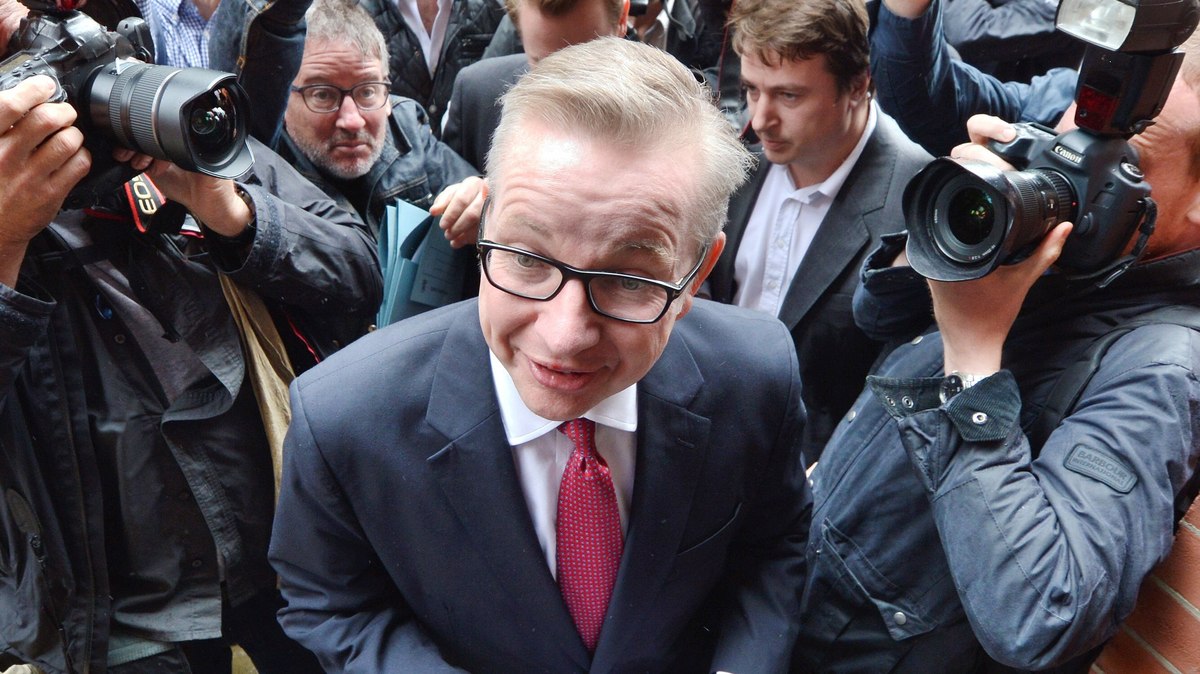The week since Britain voted to leave the European Union has seen the country plunged into economic and political turmoil.
At the end of it the man most expected to take over as prime minister in order to sort the crisis out was knifed in the back by his own campaign manager, forcing him to pull out of the contest to become Conservative party leader. Meanwhile, Her Majesty’s Opposition is on the verge of civil war. What does all this say about the fitness of the political establishment to run the country?
After David Cameron’s resignation as prime minister, following his shock defeat in the referendum, it was widely expected that Boris Johnson would become Tory leader and prime minister. He had flamboyantly led the Brexit campaign and was widely credited with being almost personally responsible for its victory, He was backed by his close colleague and fellow Brexiteer, the Justice Secretary, Michael Gove. But on Thursday morning Mr Gove stabbed him in the back. He announced that he had come to the conclusion that Mr Johnson was not fit to become prime minister and that he was now running for the leadership himself, despite having repeatedly said that he didn’t want the job and believed he wasn’t up to it.
He said: ‘Boris is big character with great abilities and I enjoyed working with him in the referendum campaign, when we campaigned with great energy and enthusiasm. But there is something special about leading a party and leading a country, and I had the opportunity in the last few days to assess whether or not Boris could lead that team and build that unity. And I came reluctantly but firmly to the conclusion that while Boris has many talents and attributes, he wasn’t capable of building that team. And there were a number of people who had said to me during the course of the week, “Michael it should be you”.’
Some will accept this account of Mr Gove’s astonishing last-minute realisation of what he now sees as Mr Johnson’s shortcomings and admire his courage for acting on it. But others are deeply suspicious and see a plot, possibly a long-hatched one. After all, they say, Mr Johnson’s fitness for high office has been a matter of public controversy for ages with figures as distinguished as the former Tory prime minister, Sir John Major, stating flatly that he wasn’t suitable to enter No 10. So Mr Gove’s conversion at the last possible moment does not ring true with many in the Tory Party. They detect a conspiracy, possibly with the figure of the Chancellor, George Osborne, behind it.
The political assassination of Boris Johnson has caused almost as much of a political earthquake, at least in the short term, as the result of the referendum itself. Charges of treachery are flying round the Conservative Party. One backbench Tory MP said the events of the last few days made the House of Cards look like Teletubbies.
Meanwhile, the British people, some delighted and some appalled at the referendum result, sees those most responsible for bringing it about at each other’s throats. Michael Heseltine, former deputy prime minister and long-standing supporter of Britain’s membership of the EU, said that we faced ‘the greatest constitutional crisis of modern times’ and poured particular scorn on Boris Johnson.
Many in the party, he said, would feel ‘a profound sense of dismay and frankly contempt’ for Mr Johnson who had ripped the party and ‘like a general, had led his army to the sound of guns, and at the sight of the battlefield abandoned the field’. Others point to the fact that Mr Johnson made up his mind which side to back in the referendum campaign only at the last minute as evidence of his lack of principle and they say that proves his decision was motivated simply by calculations of personal ambition. Now he has got his comeuppance.
Mr Gove is equally under attack. One backbench supporter of Mr Johnson said there was a ‘very deep pit reserved in hell’ for the Justice Secretary, and the veteran former cabinet minister, Ken Clarke, said Mr Gove should ‘do us all a favour and stand down now’ since he would not be able to command the trust of colleagues.
Critics of the feuding leaders of the Tory Brexit campaign believe that they simply did not expect victory and had no plan about what to do afterwards. Mr Gove’s journalist wife, Sarah Vine, said the initial implications of the surprise victory had been ‘terrifying’ and friends of Mr Johnson have said he never expected to have to pick up the pieces.
But someone will have to. Now that Mr Johnson is out of the picture, the frontrunner to become Tory leader and Prime Minister is Theresa May, the Home Secretary, a eurosceptic who backed Remain but hardly featured in the referendum campaign. As well as Mr Gove, the work and pensions secretary, Stephen Crabb, the energy minister, Andrea Leadsom, and the former defence secretary, Liam Fox are running for the top job. All of them are committed to carrying out the result of the referendum.
In ordinary circumstances, the main opposition party would be rubbing its hands at such utter disarray on the government benches. But, if anything, Labour is in an even worse crisis. Following what was widely seen as Jeremy Corbyn’s lacklustre performance in the referendum campaign, over fifty members of his shadow team resigned this week. In a vote of no confidence in his leadership, only 40 members of the Parliamentary Labour Party supported him while 172 voted against.
Yet Mr Corbyn is determined to hold on to his job, arguing that he was elected overwhelmingly by Labour Party members less than a year ago and that it would betray them for him to resign. It seems certain that he will now face a challenge from one of his former shadow cabinet colleagues, probably Angela Eagle. But if Mr Corbyn were to win again, he still won’t have the confidence of the parliamentary party. It will then have to decide whether simply to accept the result and prepare (as they see it) for electoral annihilation, or to ignore the wider party and elect their own parliamentary leader who would become the official leader of the opposition. But that route leads to civil war in the Labour Party.
So, as Britain faces greater uncertainty over its future than at any time in living memory, our political leaders are, to put it at its most charitable, all over the place. The task of replacing them is now in the hands of a tiny minority of the public, those who happen to be members of the parties choosing their leader. The rest of us have no option other than simply to look on.
What are we to make of this extraordinary situation? What’s your view of the conduct of Boris Johnson, Michael Gove and the other players in the battle for the Tory leadership? Who do you think should be the next prime minister? How should Labour resolve its problems? Do you regard the referendum result as final or do you think there should be a second referendum or a general election fought on the issue? And do you think Britain will emerge from the current turmoil stronger or weaker?










